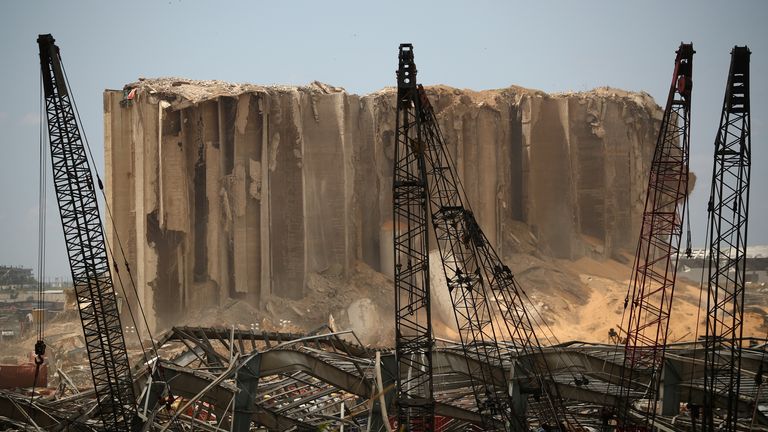Demonstrators had demanded political change after an explosion in Beirut killed more than 160 people last week.
Lebanon’s Prime Minister Hassan Diab is set to resign within hours after the entire government stepped down.
Demonstrators had demanded political change after an explosion in Beirut killed more than 160 people and injured around 6,000 last week.
Lebanon’s health minister Hamad Hassan confirmed the government had resigned as he spoke to reporters after a cabinet meeting on Monday.
The cabinet has been under increasing pressure after several ministers quit or expressed their intention to step down in recent days.
Mr Hamad said: “The whole government resigned.”

He added that the prime minister will head to the presidential palace to “hand over the resignation in the name of all the ministers”.
Mr Diab is also expected to address the nation. His cabinet now assumes a caretaker role until a new government is formed. Protests had been planned for outside the government headquarters to coincide with the cabinet meeting.

Justice minister Marie Claude Najm quit earlier on Monday, according to the state-run National News Agency, citing the conduct of the government in the aftermath of last week’s blast.
A Lebanese judge today started questioning head of state security Major General Tony Saliba over the explosion, the news agency added. It gave no further details but other generals are said to be scheduled to be questioned.

State security had compiled a report about the dangers of storing the material at the port and sent a copy to the offices of the president and prime minister on 20 July.
An investigation is focused on how the ammonium nitrate came to be stored at the port and why nothing was done about it.
About 20 people have been detained over the blast, including the head of Lebanon’s customs department and his predecessor, as well as the head of the port. Dozens of people have been questioned, including two former cabinet ministers, according to government officials.
Public outrage has grown since the deadly blast which destroyed much of the city, reducing buildings to rubble and leaving hundreds of thousands homeless.

Losses from the explosion are estimated to be between £8bn to £12bn and nearly 300,000 people were left homeless in the immediate aftermath.
Demonstrators have blamed the disaster squarely on corruption and neglect from the country’s long-entrenched ruling class. Protesters clashed with security forces over the weekend, who fired tear gas at demonstrators.
It is believed last week’s explosion was caused by 2,750 tonnes of ammonium nitrate – used as a fertiliser and in explosives – which was left in a warehouse for six years.
Port officials involved in storing or guarding the chemical since 2014 have been placed under house arrest, as the disaster is investigated.
Angry protesters have held rallies on the streets – clashing with security forces and blaming politicians for the blast – demanding political change.
Ms Najm, who was sprayed with water and verbally attacked last week while visiting a damaged area, was the third minister to resign before it emerged the government had stepped down.
